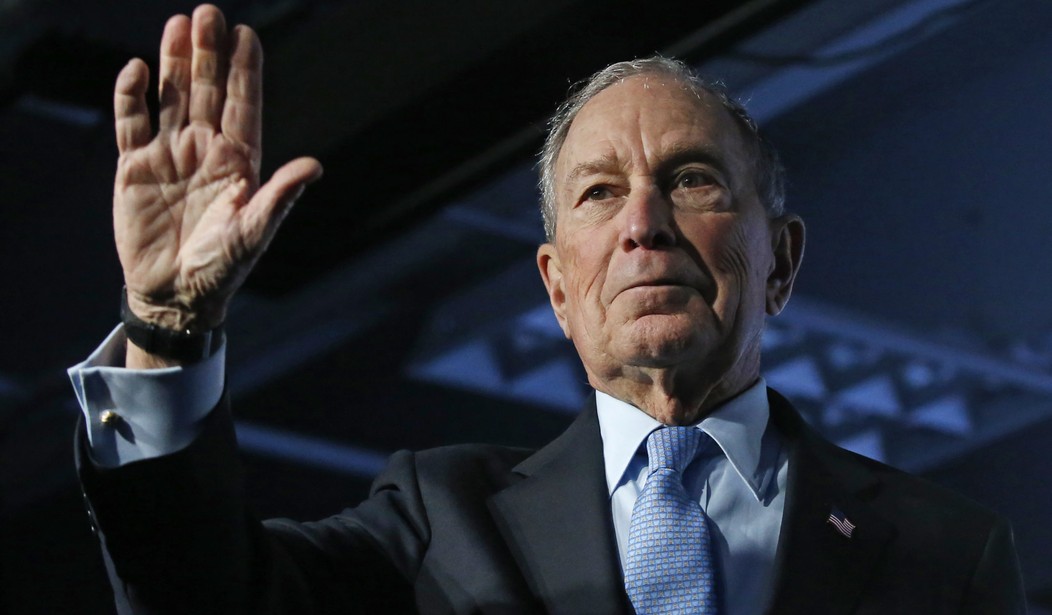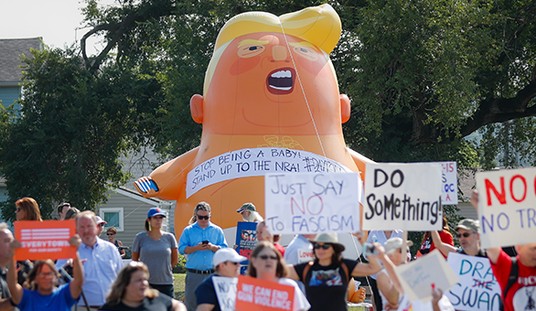Former New York City Mayor Mike Bloomberg spent roughly $500 million on the 2020 presidential race and has very little to show for it. His attempt to buy the election flopped not just because he isn’t exactly the most popular candidate but also because money does not buy elections. This crucial lesson should silence the ridiculous liberal fearmongering about Citizens United v. FEC (2010) once and for all.
Every campaign cycle, Democrats come out swinging against the unpopular Supreme Court decision, warning that due to Citizens United, people will be able to buy elections outright. That’s not what Citizens United did, and Bloomberg’s embarrassing failure shows why Democrats’ fears are overblown.
Bloomberg entered the presidential race late, planning to make a splash on Super Tuesday. His $500 million bought ads that likely stalked you on social media, television, in podcasts, and basically everywhere. But on Super Tuesday, Bloomberg lost every state — coming in behind both Sen. Bernie Sanders (S-USSR) and former Vice President Joe Biden — and only won the tiny U.S. territory of American Samoa. He won 53 delegates and decided to drop out of the race and endorse Joe Biden.
Bloomberg demonstrated that money cannot buy elections. In polls conducted by the Associated Press, about 60 percent of Democratic voters in Minnesota, Colorado, and Massachusetts (Bloomberg’s birthplace) said they would be disappointed if he won the Democratic primary. Why? Because their votes are not for sale. No one’s vote is for sale — that’s the point and the basic dignity of voting.
So what does Citizens United have to do with this? Critics say the decision gave hated “corporations” the same rights as people, allowing corporate interests to buy elections. But the Supreme Court only noted that collections of people — “corporations” in legal terms — have the right to come together to put money behind a cause they believe in. The decision protected the free speech rights of unions, environmentalist groups, think tanks, LGBT lobbies, and activist organizations of all persuasions.
Contrary to popular belief, Citizens United did not let loose the dogs of corporate political warfare. As Committee for Justice Executive Director Curt Levey explained, this Supreme Court decision left most of the limits on political spending in place. “The total ban on corporate contributions to candidates, political parties, and political action committees remains in place,” he explained.
“The continuing ban on corporate contributions is just one reason why the ubiquitous descriptions of Citizens United as a sea change are greatly exaggerated. You would never know that billionaires have always been permitted to spend unlimited amounts on independent campaign ads, or that corporate campaign ads masquerading as issue ads – for example, ‘call candidate Smith and tell him to end his support for killing baby seals’ – were already protected by the First Amendment,” Levey wrote. “In fact, a majority of states already permit unlimited corporate spending for explicit campaign ads in state races. Seven even allow unlimited corporate contributions to candidates. Yet there’s no evidence of greater corruption in those states.”
Of course, this Supreme Court decision did have some impact on elections, but not when it comes to entrenching the powerful. Quite the reverse.
As Bradley Smith noted in The Wall Street Journal, “The decision made it easier to promote (or criticize) a candidate without help from party leaders or media elites.”
This led to some upset victories where challengers defeated establishment political figures: “Hillary Clinton outspent Mr. Trump 3 to 1 in 2016. Congressional leaders and big-time fundraisers such as Reps. Eric Cantor (R., Va.) and Joe Crowley (D., N.Y.) lost their seats to primary challengers who spent a fraction of what the incumbents did. Incumbent re-election rates in the House never dipped below 94% from 1996 to 2008, but did in 2010, 2012 and 2018.”
Non-profit groups were able to promote issues that voters believed in, even when the party establishments disagreed. Suddenly, political challengers became more viable.
Freeing up political speech did not result in less democracy, but in more dynamic representative government. Sure, many tea party candidates got elected, but so did the Bernie Sanders-style socialists like Alexandria Ocasio-Cortez.
So, why do Democrats oppose Citizens United when it actually bolsters voters’ options? The party of big government cannot stomach the idea of allowing people to freely spend their own money to support causes they believe in. As the ostensible moderate Joe Biden said, “It’s time we eliminate all private dollars from elections.” It would be far better for “progressive” bureaucrats to run the political free speech market.
Yet Bloomberg gives the lie to all the Citizens United fearmongering. Not only were billionaires like Bloomberg able to spend money on their campaigns before Citizens United, but even after that decision, money in politics does not pull the strings and get people elected. Mike Bloomberg may have revealed his own cynical belief about the ability to buy elections when he said of the 2018 freshman Democrats “I bought—I got them elected,” but in reality, all he did was help boost their chances somewhat. For good or ill, the voters themselves elected those candidates. Votes — not money — have the final say in elections.
Citizens United is good for politics and free speech, and Bloomberg proves that Democrats’ worst fears about money in politics are extremely overblown. Don’t let Democrats like Joe Biden take private money out of elections based on wrongheaded fearmongering.
Tyler O’Neil is the author of Making Hate Pay: The Corruption of the Southern Poverty Law Center. Follow him on Twitter at @Tyler2ONeil.









